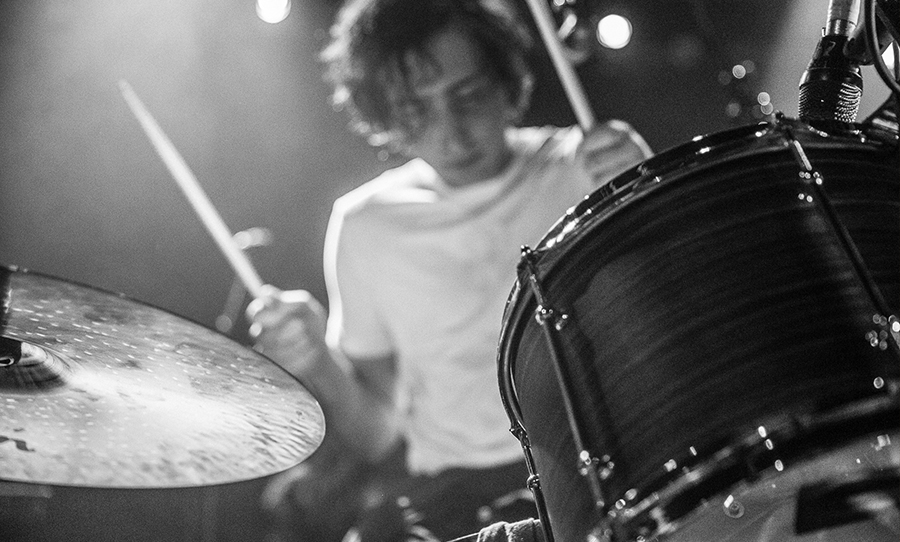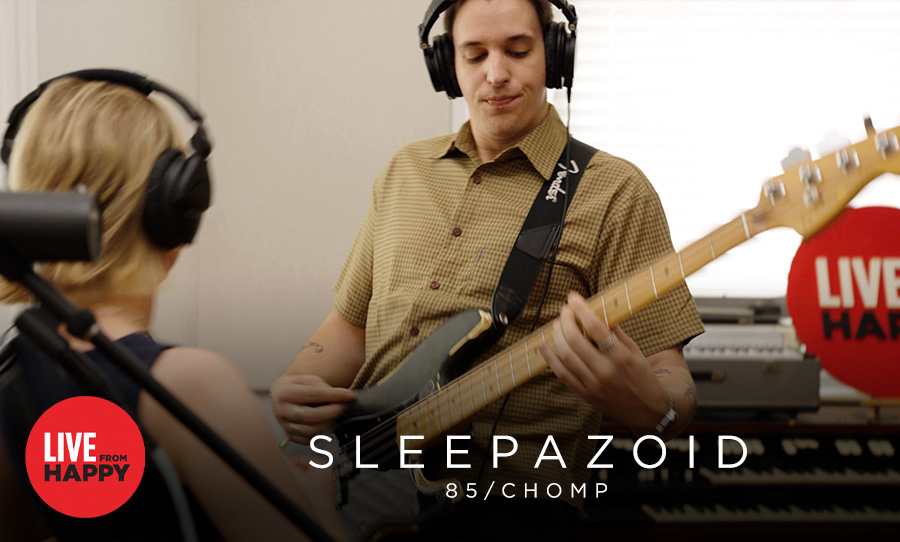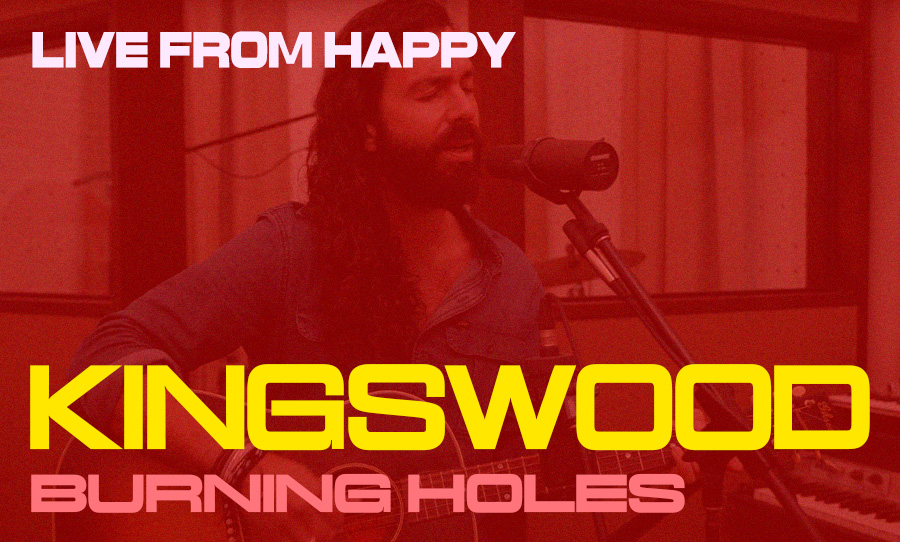We asked two industry experts to share some insight on how to apply for music grants in Australia
Being awarded a music grant can have a huge impact on an artist’s trajectory. We all know how hard it is for artists to make a living off their music, let alone make enough money to fund tours, studio time, and cover the costs associated with putting out a record. This leaves most musicians in the awkward position of having to work a day job to fund their music, which obviously has an adverse effect on their creative potential. Funding can alleviate this pressure immensely.
There are countless examples of how grants have changed an artist’s career. Back in 2014, King Gizzard and The Lizard Wizard took out the Carlton Dry Global Music Grant, which allowed them to tour The States and finish off recording I’m In Your Mind Fuzz. We all know how much has happened to them since then. And, speaking to Pitchfork in 2017, Courtney Barnett reflected on how grants gave her a leg-up in the early stages of her career: “Government grants gave me creative independence when I was starting out, because it meant I was worrying less about impressing for label and publishing advances, and I was less reliant on taking some big-company sponsorship to fund a tour.”
However, the grant application process is difficult and can be heartbreakingly disappointing if you aren’t successful. There is no one path to follow when applying for fundings. It depends entirely on your project, the grant you are applying for, and myriad other factors. That being said, there are some things you need to know before getting started.
Tips For Apply For Grants
To find out a little more about the grant application process, we spoke to a few funding experts. Andrew Tuttle is the Team Leader of National Engagement at APRA AMCOS, who fund hundreds of initiatives across the music industry in Australia and New Zealand. Aside from his position at APRA, Tuttle has had plenty of experience with music grants; he’s been a peer assessor with the Australia Council for the Arts, he also used to be a freelance grant writer for musicians, and he’s applied for (and received) some grants for his own music.
We also spoke with the grants team at MusicNSW, who offer a range of grants and funding initiatives to all kinds of musical projects. Here’s what they had to say.
What’s the single most important piece of advice you could offer an artist applying for a grant?
ANDREW: Think about why this opportunity is important to you at this particular time. There’s a big difference between applying for funding for the sake of it and applying for something that will be truly transformational for your creative or career development. Once you’ve thought about why you should receive funding, you then need to make a solid and almost businesslike (but passionate!!) case.
MUSIC NSW: Rather than one single piece of advice, we’d suggest a few:
- Read the guidelines.
- Triple check to make sure you/what you’re applying for meet the eligibility criteria.
- Call the funding body to make sure this is the right grant for you – there are people there specifically to help you with your application.
How important is having a clear budget in mind when applying?
ANDREW: Incredibly important! In competitive funding rounds, a sloppy or unclear budget can mean the difference between your application and another application of similar artistic merit being successful. It is very rare that funding organisations will fully fund (or even significant majority fund) projects, so you’ll want to think of other contributions such as label contributions, your artist fund/band kitty (gig fees, download sales, APRA AMCOS royalties) and in-kind income.
MUSIC NSW: Super important – grants are all about the money and budgets tell the story of what you’re doing. You need to be really clear about what you’re asking for, always include information on how you worked out the figures and what/who the expenses are covering. This way grant assessors know exactly what you’re up to and where the cash is going. Also, call the funding body and ask if you should be including your own fees. Often artists don’t include their own fees in grants, yet lots of funding bodies won’t fund an application if you’ve not paid yourself as they don’t see it as a sustainable/viable project if you’re not being paid. And don’t be scared to ask for the money you need to make it work! If you undersell yourself, it will appear ‘unviable’ and won’t get funded.
Is it better to be succinct or detailed when applying?
ANDREW: I personally think there’s a fine line between succinctness and detail in a good grant application. You should approach an application assuming that whilst the assessment panel will know a lot about the industry, your genre etcetera, they won’t necessarily know your work.
MUSIC NSW: Generally, it’s better to be succinct – but follow the guides provided. If they ask for 100 words, don’t go over! Often assessors have to read many applications so the clearer you can be the better. Just because there are 500 words to answer one question doesn’t mean you have to use them all, unless of course you need those 500 words to get your point across.
What is it that you think sets successful applicants apart from those who are not?
ANDREW: Firstly, I don’t think there’s a set golden rule. You can write a strong application about an amazing project, but can still be at the mercy of competitive rounds and budget shortfalls. With that said, it is really important to read the guidelines for an application. Each time! You can get a good understanding of what the funding org wants to support in that particular round, which helps you decide if your project fits within that. Write applications in your own language, but make sure it is concise. Get someone else (even just a friend or colleague – it doesn’t need to be a professional) to read over it if you can, because it’s better that they find your application unclear before an assessment panel does! Follow the support material guidelines – don’t include too little or too much. Clear and concise budget is important too.
MUSIC NSW: Good, clear, succinct writers. If you’ve got a great idea but haven’t explained it well or justified your expenses properly, it’s unlikely you’ll be successful. People that have a great idea, have understood the guidelines and submitted a considered application are way more likely to be in with a shot. Also, it’s amazingly obvious if an application has been rushed or just ‘shaped’ to fit the grant. If you want someone to invest in you, put some time into explaining to them why they should. It’s pretty simple!
What are the top 5 things that you think that funding organisations and grant assessors are looking for when selecting?
ANDREW: Artistic merit, a clear and concise application (including adhering to selection criteria!), evidence of planning, highlighting how this project will benefit your career at this time and considering how your project fits within your broader career down the track.
MUSIC NSW: Assessors and funding bodies usually look for:
- A high-quality grant – clearly articulated project, defined vision, easy to read, no typos, clear budget.
- An exciting or innovative project/idea/opportunity – something they can get excited by, something they can support, something they’d love to see eventuate
- Evidence that you’re capable of delivering what you say you want to do (track record, other investment)
- Evidence that other people also believe in you and want you to succeed (support letters, project partners, other investment)
- Evidence that this money is a necessary investment in you and your career. They don’t want to suspect that you’re just going spend all the money on booze and ciggies.
For those that are unsuccessful, what other options do you suggest?
ANDREW: It is worth contacting the funding organisation to see if they provide feedback. Note that not all do – and that’s completely their prerogative from a resources perspective. Just because a project wasn’t successful the first time, doesn’t mean you can’t tweak it a second time. Re-evaluating your timeframes and budget are also important, to see if there are other sustainable ways in which you can complete your project.
MUSIC NSW: Don’t be downhearted if you don’t get funded, get back on the funding pony and give it another go. It’s incredibly competitive and not always about you – sometimes there’s just not enough money to go around. Ask for feedback on why your grant wasn’t successful. But don’t give up – success rates are usually around 15% so just keep at it!
If you have anything else you’d like to add, please do!
ANDREW: I’d highly recommend contacting the grants officers at your funding organisation! They’re passionate and informed people and will be able to let you know if what you’re applying for might be in scope. Also, don’t take out frustrations on peer assessors. Peer assessors are doing the role for the love of it, and there’s a lot of hard decisions which get made in assessment panel meetings.
MUSIC NSW: Yes – call MusicNSW! We’re always happy to help advise you on our grants, and other grants. We want more musicians to get funded so we’re happy to help.
Where To Apply For Grants
There are a number of organisations in Australia that offer grants for a range of musical projects. If you’re seeking funding for a project, be sure to consider all of your options, but remember to only apply for those that are relevant to you.
• MusicNSW
• WAM
Special thanks to APRA AMCOS and MusicNSW for sharing their knowledge with us!



